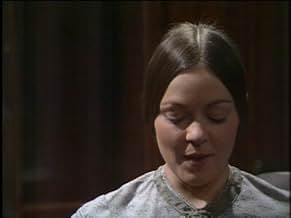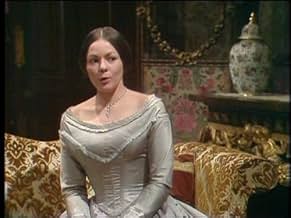Thomas Gradgrind, a wealthy, retired merchant in the industrial city of Coketown, England, devotes his life to a philosophy of rationalism, self-interest, and fact. He raises his oldest chil... Read allThomas Gradgrind, a wealthy, retired merchant in the industrial city of Coketown, England, devotes his life to a philosophy of rationalism, self-interest, and fact. He raises his oldest children, Louisa and Tom, according to this philosophy and never allows them to engage in fanc... Read allThomas Gradgrind, a wealthy, retired merchant in the industrial city of Coketown, England, devotes his life to a philosophy of rationalism, self-interest, and fact. He raises his oldest children, Louisa and Tom, according to this philosophy and never allows them to engage in fanciful or imaginative pursuits.
- Won 3 BAFTA Awards
- 3 wins & 2 nominations total
Storyline
Did you know
- ConnectionsFeatured in The Story of the Costume Drama: The Greatest Stories Ever Told (2008)
At the time he wrote "Hard Times" (1854 - 55) Dickens' position as the leading British novelist was pretty secure. "Copperfield" and "Bleak House" had determined that. But he was trying to demonstrate that he was also a great magazine editor. His first magazine was entitled "Household Words", and while publishing it he decided to enhance it's readership by writing a novel. Like all of his novels it was published piecemeal, but hitherto Dickens was the author working with other editors - so he was able to get them to accept his prolonged novels with tons of subplots and episodes. Now he was an editor himself, and he realized that he had to trim off the fat. The result was a four part serialized novel, regarding the industrial revolution in the midlands, and possibly (to his millions of fans) the least Dickens-like novel of them all. The proof of this is that, despite it's brief length being a plus for modern readers turned off by 800 - 900 page novels, more people know Dickens for "Copperfield" or "Pickwick" or "Oliver Twist" than are aware of "Hard Times".
As pointed out in some of the other reviews here, Dickens is taking a close and skeptical view of the wonderful industrial revolution. His real hero in the novel is Stephen Blackpool, a hard working laborer in the industrial city of Coketown. Blackpool is overworked and underpaid. He has drunken shrew for a wife. He can't find any type of hope in this God - forsaken city. The so - called Labor Unions are of little use (George Orwell notes in his essay on Dickens that they are little better than a protection racket). In the course of the story we watch the tragedy of Blackpool unfold - and how it is impossible to stop it.
The villains of the novel include Thomas Gradgrind, an educator and industrialist who is determined to raise a generation of realists. "Teach these children facts...nothing but facts!!", he rails at the start of the novel, and dooms his son and daughter (among others) into a bleak, colorless, joyless existence. He does get his daughter Louisa married to Josiah Bounderby (the second villain), an ironmonger and "self-made man", who won't hear of coddling the workers (the Stephen Blackpools, if you will) of the world - he keeps using a ridiculous metaphor of the workers wanting to drink turtle soup out of silver tureens. Louisa is soon bored by this man, and falls for the blandishments of Mr. James Harthouse, a Member of Parliament and the third villain in the novel. Will she give in to the advances of this cad, or will she be saved by her maid (and friend) Sissy Jupe? The B.B.C. series did pretty well in delineating Dicken's attack on inhuman education and inhuman economics, with a fine cast led by Timothy West as Bounderby, Edward Fox as Harthouse, Jacqueline Tong (Daisy on UPSTAIRS/DOWNSTAIRS) as Louisa, and Rosalie Crutchley as Mrs. Sparskit, Bounderby's housekeeper (who was once an aristocrat - her husband was a Powler we are reminded several times) and who has a secret yen for Josiah.
I do have one regret - and if you want to read the novel first do not go beyond this point below: SUPER SPOILER COMING UP: In the novel, Mrs. Sparskit is jealous of Louisa marrying Josiah, and when Louisa has her affair with Harthouse she spies on her. Her intention is to eventually reveal all to Bounderby, who will divorce Louisa and (hopefully) marry Mrs. Sparskit. But while noting Louisa's trysts with Harthouse, Mrs.Sparskit also notes a mysterious elderly woman who is constantly coming to see Josiah. After awhile, she is annoyed at not knowing who this is, and Bounderby's reticence about the matter. Finally, at the conclusion of the novel, she does meet the lady (much to Bounderby's discomfort). It is his mother. Now Bounderby talks with a lower class accent throughout the novel, and Mrs. Sparskit's amorous interest in him is based on the idea that he's low born and wealthy, and she is poor but aristocratic - they are meant for each other because she can raise him properly to his social sphere. Now she finds out that Mrs. Bounderby is not lowly at all - Josiah came from the upper class (just as Mrs. Sparskit did). He just pretended he was self-made for effect in dealing with others. Mrs. Sparskit's scorn for Josiah at the conclusion of the novel was very funny. Unfortunately it was not included in this version of the novel.
- theowinthrop
- May 5, 2006
- Permalink
Details
- Release date
- Countries of origin
- Language
- Also known as
- Tiempos difíciles
- Production companies
- See more company credits at IMDbPro
Contribute to this page

































